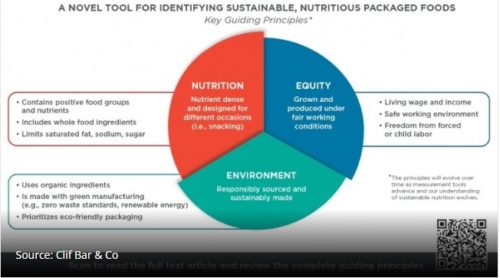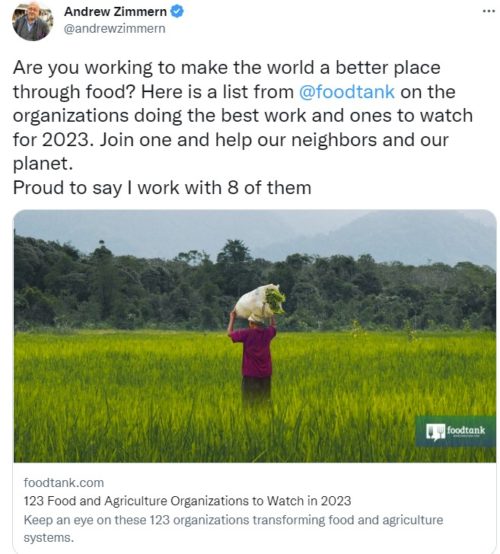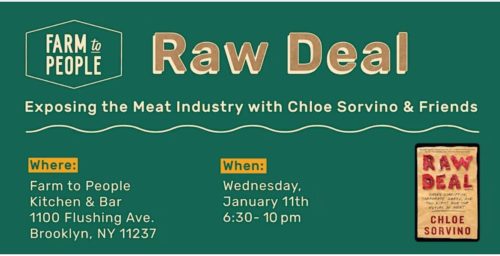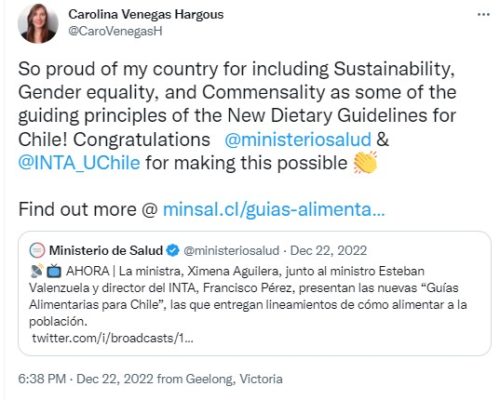Jim Krieger of Healthy Food America sent me this Food Navigator article titled “Can ultra-processed packaged food play a role in healthy, sustainable diets of the future.”
Uh oh. Another attack on the concept of ultra-processed foods. These, you will recall, are strongly associated in observational studies with poor health outcome, and one clinical trial demonstrates them to cause people to eat more calories.
The makers of highly processed foods are understandably worried that the word will get out and people will stop eating them.
Clif Bar to the rescue.
It sponsored a small session to establish guidelines for making highly processed foods healthier: “Making Healthy, Sustainable Diets Accessible and Achievable: A New Framework for Assessing the Nutrition, Environmental, and Equity Impacts of Packaged Foods”

The publication emphasizes flaws in the concept of “ultra-processed,” an approach it says
lacks the nuance needed to holistically evaluate packaged foods within recommended dietary patterns. Additionally, there is considerable diversity of opinion within the literature on these topics, especially on how best to improve nutrition security in populations most at risk of diet-related chronic disease. In support of addressing these challenges, 8 sustainability and nutrition experts were convened by Clif Bar & Company for a facilitated discussion on the urgent need to drive adoption of healthy, sustainable diets; the crucial role that certain packaged foods can play in helping make such diets achievable and accessible; and the need for actionable guidance around how to recommend and choose packaged foods that consider human, societal, and planetary health.
Acknowledgments: “Staff at Clif Bar & Company developed the meeting agenda, synthesized all prework inputs, participated as observers in the workshop, and assisted in the gathering of the materials used to prepare this manuscript.”
Here is an ingredient list for an oatmeal raisin walnut Clif Bar:
ORGANIC ROLLED OATS, ORGANIC BROWN RICE SYRUP, SOY RICE CRISPS (SOY PROTEIN ISOLATE, RICE FLOUR, BARLEY MALT EXTRACT), ORGANIC ROASTED SOYBEANS, ORGANIC TAPIOCA SYRUP, ORGANIC CANE SYRUP, ORGANIC RAISINS, CHICORY FIBER, ORGANIC SOY FLOUR, WALNUTS, SUNFLOWER AND/OR SOYBEAN OIL, NATURAL FLAVORS, SALT, ORGANIC CINNAMON, MIXED TOCOPHEROLS (ANTIOXIDANT).
My definition of ultra-processed is that you can’t make it in your home kitchen because the ingredients are industrially produced and not available in supermarkets. By this definition, the soy rice crisps are ultra-processed and maybe chicory fiber, but that’s about it.
The Clif people must be worried that they will be viewed in the same category as seriously ultra-processed snack foods.
Let’s give them and their parent company, Mondelez, credit for full disclosure.
********
For 30% off, go to www.ucpress.edu/9780520384156. Use code 21W2240 at checkout.







